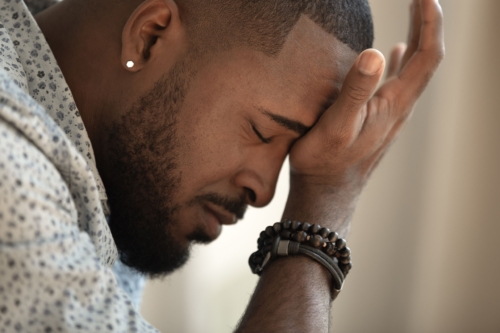Services
Depression
 What is Depression and What Can We Do About it
What is Depression and What Can We Do About it
Most people today are aware of the term depression. Many of us may use it nonchalantly on occasions that are of little inconvenience to us, such as breakups and the end of our favorite TV show. Depression goes much deeper than that and it profoundly affects the lives of the people who are experiencing it and those of their loved ones
What is Depression?
Depression is classified as a mood disorder; it is a psychological condition that causes people to feel sad, helpless, hopeless, and worthless. People who suffer from depression often end up losing interest in their lives and their daily activities as well. If depression is not appropriately managed or treated, it can last for years, and the symptoms can escalate over time.
Even though it is a mood disorder, depression also affects the immune system and can aggravate the symptoms of other illnesses such as obesity, cancer, chronic pain, and heart disease.
What are the Causes of Depression?
There is no single cause of depression. It can stem from any number of factors from genetics to neurological causes to life experiences. A common explanation for the cause of depression is “chemical imbalances in the brain”. Although this is true, it is only a portion of the complexity of depression. Despite the complexity of the causes of depression, there are also some general causes that can lead to an individual experiencing depression:
- Genetics – People who have a family history of depression can often develop it themselves. This may be due to the genes themselves or a person may become depressed if they are constantly surrounded by other people who are depressed in the family.
- Traumatic Events – Traumatic events such as being the victim of a crime or an accident that leaves you with lifelong consequences can all be a cause of depression.
- Abuse – People who have been abused physically, emotionally, or sexually at any point in their lives are highly likely to suffer from depression during and after the abuse.

- Grief and Loss – The loss of a child, a loved one, or a pet can often plunge people into depression when they are grieving.
- Illnesses – Debilitating illnesses such as chronic diseases / pain or disabilities are a major cause of depression in many people.
- Medication – Medications such as Corticosteroids can disrupt the delicate chemical balance in the body and lead to depression.
- Age – As people grow older, the possibility of becoming depressed increase. This usually results from loneliness, isolation, and an inability to perform daily tasks the way they did when younger.
- Conflicts – Personal conflicts within family members and loved ones can cause depression. These may often turn into abuse or cause people to become isolated which can escalate the depression.
What Are Common Symptoms of Depression?
There are many symptoms that people living with depression experience on a day-to-day basis. These include the following:
- Mood swings, which can range from irritability to aggressiveness, anxiety, and restlessness
- General feeling of worthlessness and hopelessness
- Disinterest in sexual activities
- Difficulty concentrating during work or conversations, talking slowly and inaudibly, not doing well in school
- Insomnia or excessive sleep or disturbances in sleep throughout the night
- Anxiety
- Loss of interest and motivation to do activities previously enjoyed
- Suicidal thoughts or attempts
- Lack of appetite
- Substance misuse/abuse
- Excessive menstrual cramps, headaches
- Significant weight loss or weight gain
- Fatigue and a lack of energy
- Digestive issues
 What Can we do to Manage and Treat Depression?
What Can we do to Manage and Treat Depression?
The good news is that depression is treatable and manageable. There are many ways to treat depression. It is all about finding what works for you and the best-case scenario would be for you to…
Consult a Therapist
While self-help is effective with decreasing some depression or alleviating the symptoms, consulting a professional psychotherapist can expedite the process and help you manage your depression quicker. The help a qualified psychotherapist can help you feel more confident in your treatment options. A psychotherapist can help you out in the following ways:
Understand Your Condition
Depression manifests differently in everyone who experiences it, so treatment for depression must be just as unique as the person experiencing it. A psychotherapist can help develop a treatment plan customized to address your specific symptoms and lifestyle.
Figure Out the Cause
As we have already mentioned, there is no single cause of depression. Similarly to the symptoms of depression, the cause of depression varies from person to person. We often see people who seemingly have everything they want experiencing this condition, which can escalate the depression as they feel guilty for experiencing it without an apparent reason.
A psychotherapist can help uncover the cause of the depression, which makes creating a treatment plan and managing symptoms somewhat easier.
- Interpersonal Therapy (IPT): This therapy is known to help people suffering from depression nourish their relationships with other people, especially their loved ones. Since isolation can worsen depression as well, building social relationships and networks and navigating life with the help of other people can help the individual see their lives more positively.
- Stress Management: The psychotherapist will try to teach the individual new life skills and explore talents that can help them cope with life more healthily. Since stress is a huge part of depression, learning how to manage it can help in relieving it as well.
A psychotherapist can be an effective option a person can have if they wish to overcome depression and live a happier, healthier life.

